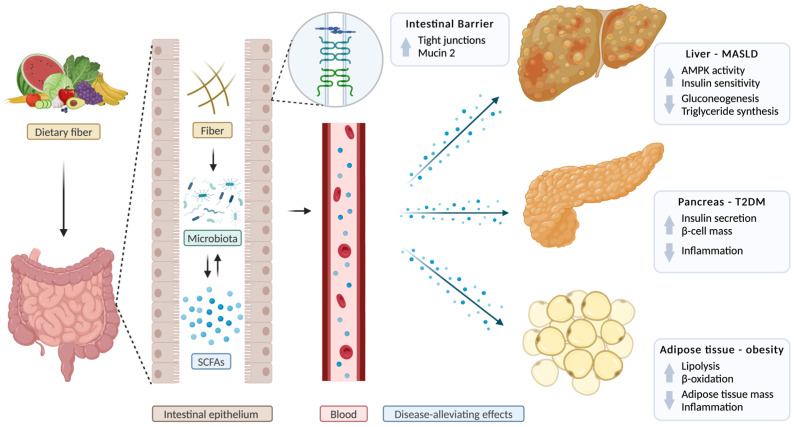Figure 2.
Short-chain fatty acids in metabolic dysfunction-associated steatotic liver disease, type 2 diabetes mellitus, and obesity. Short-chain fatty acids (SCFAs), produced by the gut microbiota from dietary fiber, are transported through the bloodstream to various organs or directly act on the intestinal epithelium. They improve intestinal barrier function by increasing the expression of tight-junction proteins such as claudin-1, claudin-7, zonula occludens-1, zonula occludens-2, and occludin, and by strengthening the intestinal mucus layer by increasing mucin 2 secretion. In the liver, SCFAs improve metabolic dysfunction-associated liver disease (MASLD) by activating 5′ adenosine monophosphate-activated protein kinase (AMPK), a key enzyme that regulates liver metabolism, enhancing insulin sensitivity, reducing gluconeogenesis, and inhibiting fat production. In the pancreas, SCFAs boost insulin secretion, promote β-cell expansion, and reduce inflammation, all of which contribute to the prevention of type 2 diabetes mellitus (T2DM). In adipose tissue, SCFAs reduce inflammation and decrease fat mass by upregulating lipolysis and β-oxidation, thereby helping to alleviate obesity. AMPK, 5′ adenosine monophosphate-activated protein kinase; SCFA, short-chain fatty acids. Created with a license from BioRender.com (accessed on 5 March 2025).

